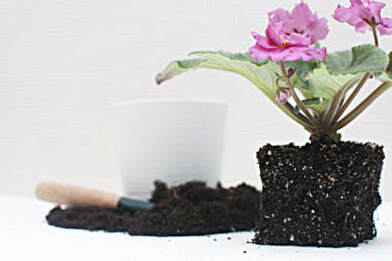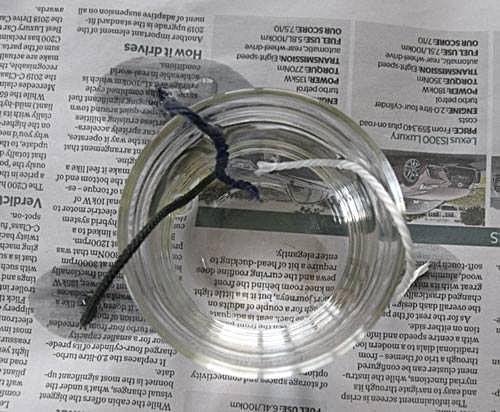
WICKS – Ruth Coulson (Ruth is with the Australian African Violet Association and lives on the Central North Coast of NSW) (Originally published on the African Violets Down Under Facebook page.(www.facebook.com/groups/241227626277942/?fref=nf) Many of our growers use wick watering for its convenience and simplicity. Have you considered how many different cords can be used?
With those two provisos, here are some suggestions:
Test the suitability of cord by placing a section of cord with one end in a glass of water. Stand the glass on a pad of newspaper and let the end of the cord hang down to the paper. See how quickly the water dampens the paper. Whatever you use, and despite doing this sort of test, always try on just a few plants first. What is satisfactory for you depends very much on your climatic conditions and the potting mix you are using. The cords being tested in the photograph are butcher’s twine (white – on the right), 8 ply acrylic knitting yarn (dark blue – top of picture) and Nycrame cord (green – left). I apologise that the newspaper is distracting, but it is the most suitable to show the water being wicked. You will see that the acrylic yarn is conveying the most water. |
|
.
|
